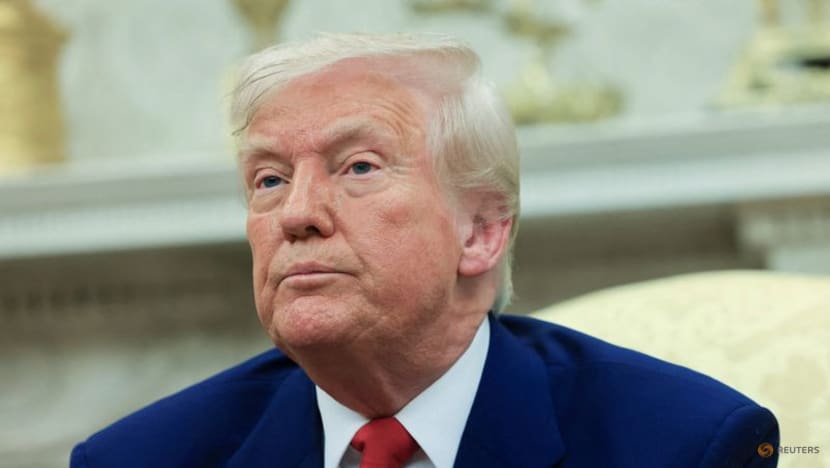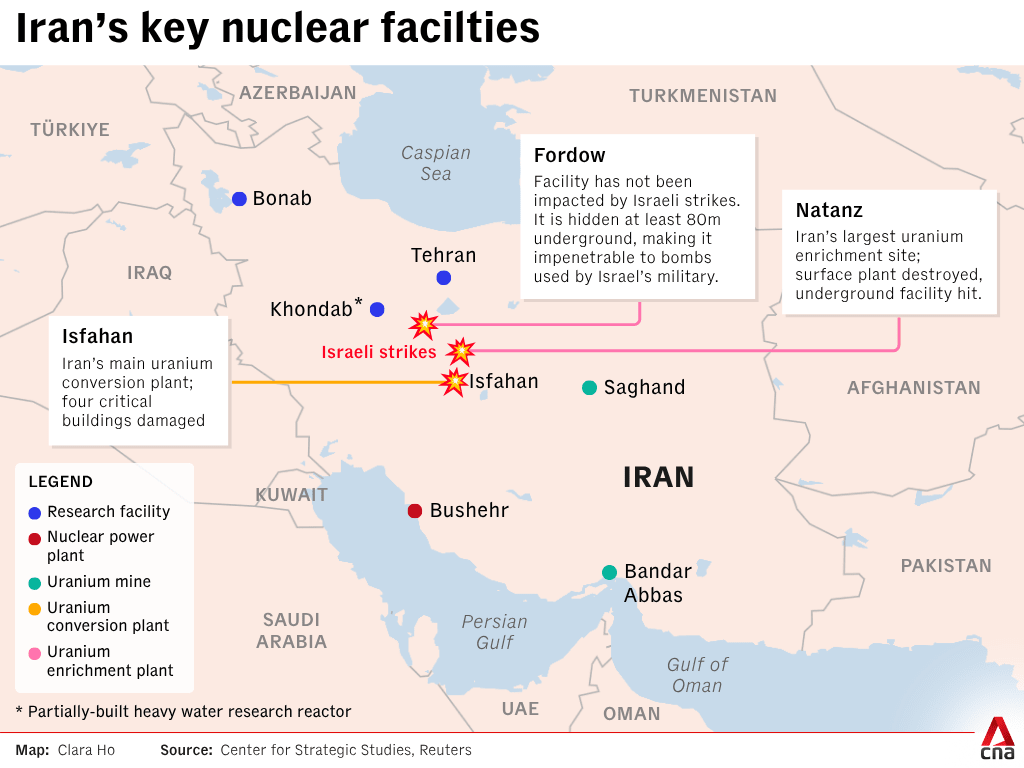Commentary: Could US really join Israel to strike Iran or is it a negotiation tactic?
Iran is at its weakest and United States President Donald Trump knows it. The threat of US military action could be to force Tehran back to the negotiating table, NUS Middle East Institute’s Carl Skadian says.


This audio is generated by an AI tool.
SINGAPORE: During his campaign and in the months after taking office, United States President Donald Trump has repeatedly spoken out against getting the US involved in “stupid endless wars” in the Middle East. So far, he has managed to keep his word, his bombing campaign against the Houthis in Yemen excepted.
He has pursued a deal with Iran that would end its nuclear weapons programme. While doing so, he has managed to keep a newly emboldened Israel from seizing what it viewed as a golden opportunity to deal with Iran, waving off attack plans and rebuffing calls for the US to join the military campaign.
When Israel went its own way to directly strike Iran last Friday (Jun 13), the US was quick to point out that Washington was not involved and Mr Trump called for Iran to get back to the negotiating table.
As recently as Jun 12, one day before Israel’s strikes, Mr Trump was talking up prospects for a deal, saying that there had been “very good discussions”. Even at the G7 summit in Canada on Monday, while Israel and Iran were duking it out, Mr Trump doubled down, saying “(Tehran) wants to make a deal”.
Then, he left the summit early and just a day later, executed a volte-face. Now, there are growing fears that the US is poised to enter the conflict.
Mr Trump’s statements have grown darker, calling for Iran’s “unconditional surrender” and issuing a veiled threat against Supreme Leader Ayatollah Ali Khamenei, saying that the US knew his location but won’t kill him “for now”.

WHAT CHANGED FOR THE UNITED STATES?
It is plausible that the US will join the fray. Iran is at the weakest it has been since its 1980-1988 war with Iraq. With continuing Israeli strikes, it is getting shakier by the day.
The Israel Defense Forces have declared they have “freedom of action” in the skies above the country. If the US wades in, American bomber crews will be less likely to be brought down and this lowers the chance of a major backlash at home.
One can also only wonder about the state of Iran’s leadership, with its military leadership decimated and threats to “take out” the Supreme Leader being bandied about (Israeli Prime Minister Benjamin Netanyahu has not ruled out killing him).
Only the US has the capability to hit the buried Fordow site with enough force to cripple the Iranian nuclear programme, which is the key reason Israel has been lobbying for American action and why Washington has issued these new threats.
IS THIS ALL A NEGOTIATION TACTIC?
However, it is just as likely that Mr Trump is resorting to a favourite tactic of his: backing his foes into a corner in a bid to get a deal done.
There has been broad agreement that while Iran will accept a deal that it deems favourable, it is also playing for time, with one particular date in mind: Oct 18, when the window for the reimposition of United Nations sanctions – lifted in exchange for making the 2015 nuclear deal – closes.
Mr Trump has signalled that he has a finite window to get things done. When Israel began striking on Jun 13, he posted on Truth Social that he had given the Iranians 60 days to get over the finishing line and the attacks occurred on the 61st day.
He has also clearly laid out his red line: zero nuclear enrichment for Iran – which happens to also be Tehran’s own dealbreaker. With talks going nowhere, it was becoming clearer that the US president was losing his patience and had reportedly come to believe he was being played by the Iranians.
MAGA, THE SOURCE OF OPTIMISM
There is one other factor for optimists who believe we are not headed for an escalatory spiral to cling to: the president’s MAGA base.
Many of Mr Trump’s longtime supporters, including the former Fox News presenter Tucker Carlson, and his former adviser Stephen Bannon, are already speaking out against American involvement.
While fervent anti-Trump outlets are seizing on this to write outlandish headlines such as The MAGA Coalition Has Turned On Itself, it is true that a divide between Republican hawks and the isolationists that form a large part of the MAGA faithful is opening up.
Given these factors, it is reasonable to conclude that Mr Trump, knowing Iran has an extremely weak hand – and one that could be weakened even further in the coming days – has gone for the jugular and upped the ante.
It would take an extremely confident poker player to call his bluff. At this stage, Iran is certainly not one, especially not when the regime’s own survival appears to be on the table.
That, at least, is what optimists – this writer included – would like to believe.
Carl Skadian, a former journalist and editor for 30 years, is deputy director at the Middle East Institute, National University of Singapore.

















